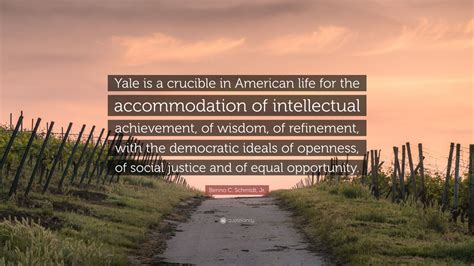A Quote by Paul Saffo
We do need to rethink privacy. I think we need to fall back on (former Supreme Court Justice) Felix Frankfurter's definition of privacy which is, "Privacy is the right to be left alone."
Related Quotes
I don't think he would have had any trouble answering Justice Sonia Sotomayor's excellent challenge in a case involving GPS surveillance. She said we need an alternative to this whole way of thinking about the privacy now which says that when you give data to a third party, you have no expectations of privacy. And [Louis] Brandeis would have said nonsense, of course you have expectations of privacy because it's intellectual privacy that has to be protected. That's my attempt to channel him on some of those privacy questions.
What I do think is important is this idea of a 'privacy native' where you grow up in a world where the values of privacy are very different. So it's not that I'm against privacy but that the values around privacy are very different for me and for people who are younger than my parent's generation, for whom it's weird to live in a glass house.
In our culture privacy is often confused with secrecy. Open, honest, truth-telling individuals value privacy. We all need spaces where we can be alone with thoughts and feelings - where we can experience healthy psychological autonomy and can choose to share when we want to. Keeping secrets is usually about power, about hiding and concealing information.
Privacy is an age of universal email collection and spying, with millions of CCTV cameras and warrantless spying pervasive; privacy has become virtually nonexistent and, therefore, extremely scarce and desirable. Bitcoin can be a completely anonymous transaction that maintains the user's privacy beyond the reach of any authority.


































